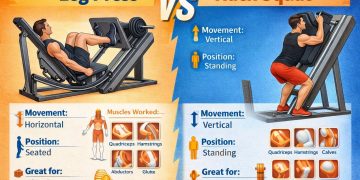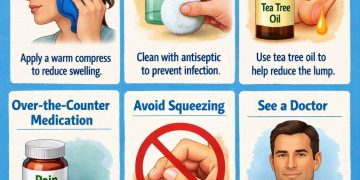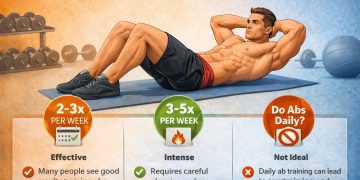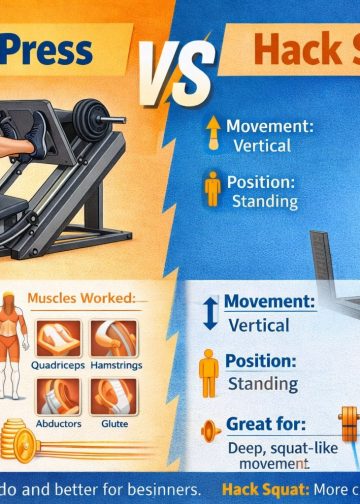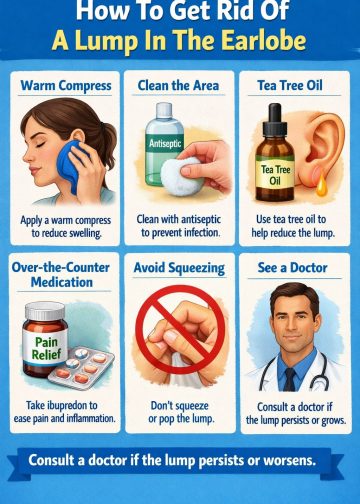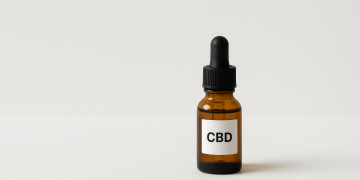A Missing Piece in the Wellness Industry
Walk into any health store or scroll through wellness ads and you’ll notice the same thing. Products and services are often aimed at younger men, women, or general audiences. Older men, especially those over 40, are left out.
That’s strange when you consider the numbers. The U.S. Census Bureau reports there are more than 65 million men over the age of 40. This group is growing faster as people live longer. Yet wellness marketing still treats them as a side note.
Joe LoGalbo, who founded his company after watching his father lose energy and strength, put it simply: “My dad wanted help. But everything on the shelf felt like it was for younger guys. I thought, what about men like him? What about men in their 50s or 60s who still want to feel strong?”
The Drop in Hormones
One reason older men need attention is biology. Testosterone can begin to drop about 1–2% per year after age 30, according to clinical studies. That doesn’t sound like much, but by 50 the difference is noticeable.
Lower testosterone can mean less energy, less muscle, more fat, and slower recovery. Men often blame themselves for being “lazy” when in reality it’s a hormonal shift. One customer described it like this: “I used to stay out late, sleep five hours, and still work hard the next day. At 48, I needed coffee just to get out of bed.”
Ignoring this drop means ignoring the needs of millions of men.
The Lifestyle Squeeze
Beyond biology, life itself changes after 40. Careers peak. Stress from work builds. Kids get older and require more time. Many men cut back on exercise, grab quick meals, and stay up late working.
The CDC reports that 42% of men aged 40–59 are overweight. That extra weight adds to fatigue, body aches, and low confidence. A man in his 50s shared: “I didn’t even recognise myself in photos. I was always tired, and I felt invisible in my own house.”
Wellness programmes rarely target this reality. Instead, they push 20-something workout plans or trendy diets.
Why Ignoring Older Men Hurts Everyone
The gap isn’t just unfair. It’s expensive. Illnesses rise sharply after 40. The American Heart Association reports that men are more likely to suffer in midlife than women.
When men don’t feel supported, they often avoid doctors. The Cleveland Clinic found that only 40% of men get annual check-ups. That means problems go unnoticed until it’s too late. Families feel the strain. Communities lose leaders and mentors.
One man said bluntly: “I skipped the doctor for years. By the time I went, my numbers were through the roof. If someone had been talking to me about men’s health before, maybe I wouldn’t have waited so long.”
Building Awareness
The first step is awareness. Men need to hear that their struggles are common and that solutions exist. More campaigns, articles, and products should speak directly to men over 40.
LoGalbo believes this is key. “When you tell men they’re not broken, that they’re just at a new stage of life, they listen. They want tools that fit their needs. Not hand-me-down advice meant for someone else.”
What Men Can Do Right Now
Move with Purpose
Strength training is critical. Men lose 3–5% of muscle mass per decade after 30 if they don’t train. Add walking or cycling to keep the heart strong. One man in his 60s said, “I started lifting weights again. Within months, I felt younger. My energy at work came back.”
Improve Nutrition
Skip processed food and fast carbs. Focus on meat, fruits, and some greens. Even swapping soda for water makes a difference. One man laughed, “Dropping soda was like a cheat code. My belly shrank, and my afternoons weren’t a crash zone anymore.”
Manage Stress Before It Manages You
Stress doesn’t disappear, but it can be managed. Breathing exercises, short breaks, and time outside lower cortisol. Try simple routines that fit into the day.
Use Smart Support
Sometimes men need help that fits their specific stage of life. That’s why products designed for men over 40 exist. For example, some men use TestoGreens MAX to support energy, focus, and recovery alongside exercise and nutrition.
A Call for a Culture Shift
The wellness industry must catch up. It should stop pretending men over 40 don’t care about health. They do. They want to stay strong, provide for their families, and enjoy their later years.
LoGalbo summed it up: “Everyone else tells men to accept slowing down. But why? Why not tell them they can grow stronger, even after 40? That’s the message men are waiting for. And it’s possible.”
Closing the Gap
Older men don’t want pity. They want support that works. They want fitness advice tailored to their stage of life. They want supplements designed for their bodies. They want honest conversations about hormones, stress, and confidence.
Closing the gap means fewer men hiding their struggles. It means healthier families. It means more men living with purpose and energy.
As one man in his late 50s said after making changes: “I thought my best days were behind me. Turns out I was wrong. With the right habits, I feel alive again.”








